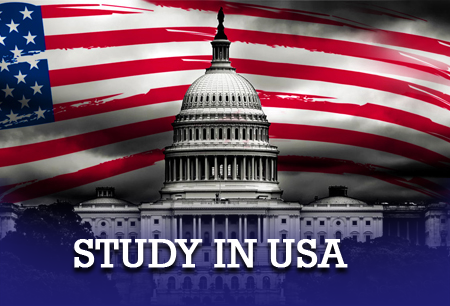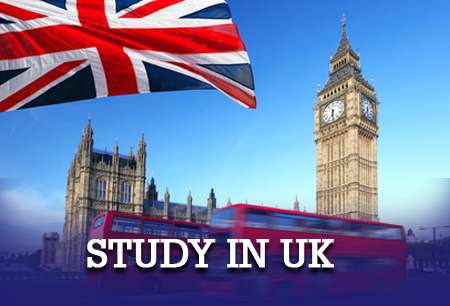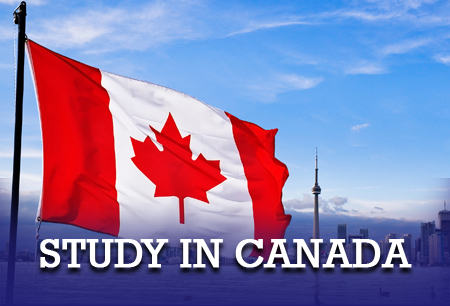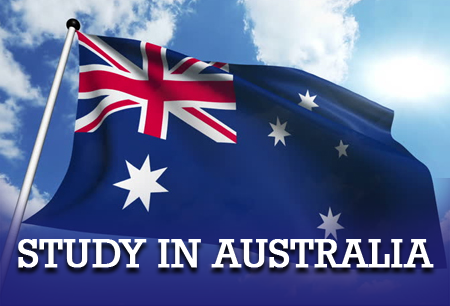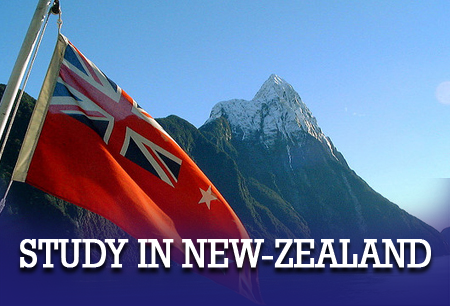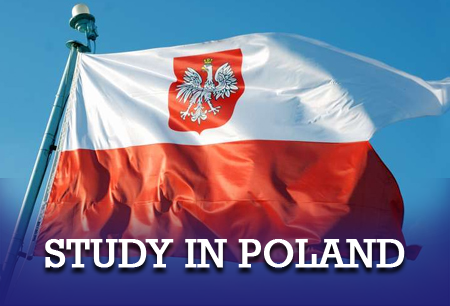ABOUT CANADA

“High academic standards and thorough quality controls mean that students may gain a high-quality education that will benefit their careers over the long term. A Canadian degree, diploma or certificate is generally recognized as being equivalent to those obtained from the United States or Commonwealth countries. “
- Ottawa is the capital of Canada.
- There are 10 Provinces and 3 Territories in Canada.
- Vancouver, Victoria, Toronto, Calgary, Halifax, Montreal and Winnipeg are major cities in Canada.
- Canada is the second largest country in the world by Area after Russia spreading over an area of 99 lakh square kilometers and with a population of around 36 million. Among them 80 % population of Canada lives within 250 kilometers of border with the USA.
- Toronto, Ottawa, Montreal, Edmonton, Calgary, Winnipeg, Regina and Vancouver, home to large immigrant populations.
- Strong presence of Gujarati, Punjabi, & South Indian community.
- The UN has consistently ranked Canada as one of the best places in the world to live.
- Canada invites more than 2 lakhs immigrants in different categories every year. Out of Canada’s 35 million people, over 6 million are immigrants.
- The largest numbers of immigrants arriving in Canada currently come from India, China and the Philippines.
- The beauty of Canada lies in its multiculturism. Though the French and the English are more in number, Canada is a land of Immigrants.
- Per capita income of Canadian is $ 41,506 (en.wikipedia.org/wiki//Canada)
Canada is an immense country. It is very diverse in its people, its landscape, its climate, and its way of life. However, Canadians do share the same important values.
WHY STUDY IN CANADA
When you think of studying abroad what factors would you keep in mind? Quality and internationally recognized degrees, Cost Effective, Safe destination of study and welcoming and multicultural environment – you will find these and much more in Canada thereby making it one of the favored destinations among Indian and other international students to study in Canada.
here are many reasons why more than 130,000 International Students chose to live and study in Canada each year. Here are just a few:
- Qualifications from Canadian study programs are highly respected around the world
- Studying in Canada is affordable
- Canada is known as a multicultural society
- Canada provides numerous safe and secure communities to live and study
- Canada offers world-class language education opportunities
- Canadian schools offer an exciting campus lifestyle
- Canadian institutions are innovative and offer an abundance of research opportunities
- Canadian government policy offers many immigration programs for permanent residence after a period of study in Canada
Quality and internationally recognized degrees:
Canada places a lot of importance to education and maintains very high standards in education. A degree acquired from Canadian universities in recognized globally and is valued highly in the international job market. Canada is renowned for its research-intensive universities. Canada is ranked 4th in the world for scientific research.
Varied Options:
The choice of schools in Canada is wide and varied, from major research institutions to small liberal arts schools & universities offer a wide range of duate and professional degree programmes in a very flexible mode. Canada has 100 universities, 200 colleges & renowned institutes, accredited language schools as well as specialised institutes.
Affordable education & living:
Canada offers not only quality education, but education which is affordable for international including Indian students. Compared to countries like the UK, USA and Australia, cost of education in Canada is quite moderate.
Safe Country:
A very important factor for most Indian and other international students while choosing a study abroad program, is the safety and security of the country and the city in particular. Parents are worried about the safety of their children and factors like crime against women, racial discrimination, theft and burglary play an important role while choosing a destination for study abroad. In this respect, Canada is one of the safest places to study with very low crime rates and cases of racial discrimination. Statistics by Numbeo reveal that Canada’s safety index (62.42) is much higher than the safety indices of other popular study abroad destinations such as US (49.99), UK (57.9) and Australia (57.94).
Multicultural Environment:
Canada has a multicultural environment with people of all religions, races and cultures. People of Canada are extremely friendly and welcoming. The multicultural environment gives students an opportunity to interact with people of all backgrounds and ethnicity. There are numerous communities and associations of which you can be a part and get a feeling of a home away from home. The multicultural environment also helps you find restaurants serving ethnic and traditional Indian foods. You can contact your international student advisor to find out about the ethnic club or association you can join to soak in the homely feeling of the country to which you belong. No wonder that Canada has the 7th largest student population in the world, with 2,65,000 international studentsstudying at various levels of education!
Scholarships:
Canada offers many scholarships specially designed for international students:
There are limited scholarships available in Canada but they rarely cover the full cost of a study program and they are not always easy to find. Scholarships to international students are available at some Canadian institutions for students with exceptional results. The amount awarded varies from one institution to another and usually covers only part of a student’s education and living expenses. The calendar of each university in Canada includes a complete and detailed list of the scholarships it administers this information is usually available on school web sites as well. Obtaining a scholarship is very competitive and applications must be made directly to each university along with the application for admission. Community and Career Colleges do not usually awards scholarships nor do
school boards or most private schools.
Job Opportunities:
Canada is one of the few nations that offer job opportunities to students who have graduated from Canadian Universities and have obtained a Canadian degree. In fact, after finishing their studies, international students can work in Canada for up to 3 years!
A High Tech Country:
Canada is an international leader in computer and information technologies and has a reputation for excellence in such sectors as telecommunications, animation, transportation and engineering; and specifically, aerospace, urban transport, microelectronics, medical devices, advanced software, hydroelectric and nuclear power, lasers and opto-electronics, biotechnology etc. Canada was among the first in the world to recognize the need to connect schools and libraries to the Internet, and its SchoolNet program is being copied around the world. All kinds of modern amenities are provided and most campuses happen to be wired with the most sophisticated technologies the world has to offer.
Canadian and Provincial government policy promote permanent residence Immigration after a period of study in Canada Current government policy caters to a growing pool of international students with strong ties to Canada, including Canadian study credentials and Canada based work experience. Qualified students on a study permit are encouraged to apply for Canadian permanent residence under various Federal or Provincial immigration programs without ever having to leave Canada.
Study in Canada Innovative With Abundant Research Opportunities
Canada’s many universities and colleges are leaders in research one of the hallmarks of a Canadian post-secondary education experience. With a study in Canada experience you can become a part of this important part of the Canada study landscape. In Canada, government and industry often collaborate together to support a myriad of research projects in the medical sciences, computer technology, telecommunications, agricultural sciences and environmental sciences.
Study in Canada Canadian Universities and Colleges Offer Exciting Campus Lifestyle
Campus Lifestyle is an important consideration for many international students and Canada does not disappoint. Campuses across the country feature the latest in technology with wireless hotspots throughout enabling a rich experience featuring online interactive learning experience. Campus facilities often include Olympic-calibre sports facilities, concert halls, student-managed government, radio, newspapers and on campus businesses within an expansive infrastructure. Canadian universities and colleges typically feature the best mix of an academic and leisure lifestyle in an environment that facilitates immeasurable opportunities to meet students from a varied international student microcosm
EDUCATION SYSTEM
The education system in Canada encompasses both publicly-funded and private schools, including: community colleges/ technical institutes, career colleges, language schools, secondary schools, summer camps, universities and university colleges. … Secondary schools go up to Grades 11 or 12, depending on the province.
- Student Can Apply in SPP ( Student Partner Program ) for Diploma / Certificate/Post Graduate Courses or in General category (Non-Spp) for Bachelor /Master /Ph.D. Courses.
- Education in Canada is funded, provided and managed by Provincial Governments of Canada.
- There are 98 Universities in Canada among them 4 in Top 100 World Ranking and 9 in top 300 world Ranking.
- Bachelor, Master and Ph.D. program offered by Universities only with higher requirement in IELTS.[ Students can apply in General Category for Universities Admission]
- Diploma (2 Years ) // Adv. diploma // Post Graduate Certificate // Post Graduate Diploma will be offered by SPP Colleges and Student should apply under SPP category only.
- Tuition fees range from $ 13,000 CAD to $ 15,000 CAD (Approx) per year depending on the program selected . ( for Courses in SPP Colleges
- Boarding and living costs are estimated at $ 7000 to $ 13000 CAD per year.
- Minimum Wage rate in Canada (General) is $ 11.25 & $ 10.55 in Ontario for students.
- Opportunities for Co-Operative education and Internships, and international students can often work while they study.
APPLICATION PROCEDURE
Canada’s universities maintain high standards of academic excellence and are consistently recognized in top international rankings. Moreover, Canadian tuition fees are some of the lowest in English-speaking countries. Each year hundreds of thousands of international students attend Canadian colleges and universities… Offer Bachelors, Masters and Phd.
Masters and Phd Programs are available only in Universities
CATEGORIZATION OF DEGREES
durations of the Degrees and Diplomas in Canada
DOCTORAL OR PHD
A minimum of 2‐5 years of full‐time study for doctoral programs is required.
MASTERS
Masters degrees generally require at least 2 years of full‐time studies including a thesis (a long essay based on original research), practicum or research paper.
PG DIPLOMA / GRADUATE CERTIFICATE
Generally are of 1 year duration and exceptionally of two years as well.
UNDERGRADUATE
Undergraduate programs leading to a bachelors degree generally four years of fulltimestudy.
UG DIPLOMA (Post Secondary Diploma)
A UG Diploma generally comprises of two or three years of full time study
INTAKES
The main Intakes are September and January.
There is a limited May intake as well.
ENGLISH LANGUAGE REQUIREMENTS
TOEFL/IELTS scores (TOEFL only for Universities minimum score 79 , IELTS compulsory for SPP Colleges.
- 6.0 with no band less than 5.5 for UG Diploma Programs and Bachelors Degree.
- 6.5 with no band less than 6.0 for PG Diploma and Masters Degree programs.
ELIGIBILITY
- 12 years of full time school education for Bachelors.
- 16 years of full time education for Masters in technical streams likes engineering,
- medicine, physiotherapy etc.
- 15 years of education accepted for hospitality, business admin in community
- colleges and MBA in universities we represent.
- Grades range for Masters – Aggregate of minimum 65% required for Masters
- where as most of the high ranked universities require 70% and above.
- PG Diploma / Diploma – minimum 50-55% in qualifying exams (Bachelors/Std 12).
- Specific subject requirements like Mathematics may also exist for some programs.
STUDENT PARTNERSHIP PROGRAM – SPP
CANADA STUDENT APPLICATION UNDER STUDENT PARTENERS PROGRAM (SPP)
About SPP ( Student Partners Program )- The Student Partners Program (SPP) is a project designed and implemented in partnership between the Canadian visa offices in India and the Colleges and Institutes Canada (CICan).
- Currently Forty Seven of CICan’s member institutions are involved in the program which was launched in April 2009 to improve student recruitment outcomes. The Government of Canada has extended Student Partnership Program due to high visa success rate and Genuine student Applicant.
- At this time, SPP is open to Indian nationals only.
- Under this Program a student visa applicant who holds an unconditional admit from a SPP participating Institution and also meets other specific criteria like having a Guaranteed Investment Certificate (GIC) will be put on Fast Track and stands a very good chance of Visa Approval.
ENTRY CRITERIA FOR STUDENTS UNDER SPP IN CANADA
Education Requirement for Diploma and Certificate courses :- 12 years of full time school education also All diploma ( 10+3, 10+2+3 )
- Grades minimum 50‐55% in Std. 12th for Diplomas, though high ranked universities may require 70% and above.
- Specific subject requirements like Mathematics in Std. 12th may also exist for some program.
- Academic requirement should be above 50 % or 2nd class is must with maximum 4 to 5 Backlogs
- Minimum 50-55% in Bachelors.
- 15 years of education accepted for all PG Diplomas in community colleges.
- Specific subject requirements like Mathematics may also exist for some programs.
- For Courses after Bachelor Degree i.e. Post Graduate Program, Overall 6.5 Band required with no Band less than 6.0.
- Note : For Some Professional Courses like Dental , Pharmacy ,Physiotherapy, Bio-Technology, Nursing the institution requires a superior score, that is 6.5 with no bands less than 6.0 or higher 7.0 and % in Maths Subject in 12th also considerable for Eligibility.
- Student need show purchase of Guaranteed Investment Certificate ( GIC ) of amount $ 10,200 CAD as a proof of cost of living in Canada for 1 year( Including Bank Service charge) from Nova Scotia Bank or ICICI Bank ,Canada and Evidence of Payment of First year/ 1stSemester Tuition Fees.
- Course Fee in SPP colleges varies approx. $ 11000 to $ 16000 CAD depending on courses and colleges
- Students can work part‐time 20 hours a week during term time and 40 hours week during vacations or during scheduled breaks without the need to apply for a separate work permit.
- The main Intakes are September ( Fall )and January (Spring ). There is a limited May intake as well in few Universities and colleges.
DOCUMENT REQUIRED FOR ADMISSION IN COLLAGE UNDER SPP
- Passport copy first and last page.
- P10th & 12th Mark sheet.
- Bachelor’s /Master’s all mark sheet along with degree certificate.
- Bachelor’s/Master’s Transcript.(If available)
- Experience Certificate(If any)
- IELTS Score sheet.
- Credit Card Details (for Application Fees payment to College / University) [Note: Application fees (as per the requirement of SPP Colleges).
EDUCATION REQUIREMENT
Each university would have its own general eligibility criteria, as well as specific academic qualifications that applicants must possess. Students must also provide proof of their proficiency in the English by providing their IELTS or TOEFL scores.
Other test scores that may be required for specialized courses are listed below:
- GRE (Graduate Record Examination) for graduate degrees
- SAT (Scholastic Aptitude Test) for bachelor’s degrees
- GMAT (Graduate Management Aptitude Test) for MBA and other management courses
- LSAT (Law School Admission Test) for law degrees
- MCAT (Medical College Admission Test) for medical courses
GENERAL CATEGORY NON-SPP
Canada Student Application under General Category
- Student Can apply for Bachelor // Master // Ph.D. Courses under General Category only.
- Only Universities and some Non SPP colleges in Canada provides such courses and have their own criteria / requirement for Admission.
- 12 years of full time school education.
- Grades minimum 50-55% in Std. 12th for Diplomas though high ranked universities may require 70% and above.
- Specific subject requirements like Mathematics in Std. 12th may also exist for some program.
- Minimum 65% required in Bachelors where as most of the high ranked universities require 70% and above.
- 16 years of full time education required for Masters in technical streams likes engineering, pharmacy, computer science etc.
- 15 years of full time education acceptable for MBA in some of the universities we represent.
- For Bachelor Degrees, TOEFL iBT (only accepted by Universities) minimum score of 79 or IELTS 6.0/6.5/7.0 is required as per Course and University requirement.
- For Masters, TOEFL iBT (only accepted by Universities) minimum score of 88+ or IELTS 6.5/7.0 is required as per course and University Requirement.
- Self funded – Parents.
- Loans from approved banks. Repayment commences up to one year after graduation or 6 months after securing a job whichever is earlier. The period for repayment also varies and may be upto 15 years.
- Current immigration regulations permit students to work part‐time 20 hours a week during term time and 40 hours a week during vacation.
Documents Requirement For Admission in University Under General Category
- Passport copy first and last page.
- 10th & 12th Mark sheet.
- Bachelors /Masters all mark sheet along with degree certificate.
- Bachelors/Master Transcript.
- Experience Certificate(If any)
- IELTS Score sheet.
- 2 Recommendation letters
- Statement of Purpose (SOP)
- Resume
WORK RIGHTS FOR STUDENTS
Students are eligible to work on or off campus from day one.
- Study permits will automatically authorize the holder to work on/off-campus for up to 20 hours per week during the academic session and full-time (i.e. 40 hours per week) during scheduled breaks without the need to apply for a separate work permit.
- The study permit holder should be pursuing academic, vocational or professional training of six months or more that leads to a degree, diploma or certificate at a Designated Learning Institution.
Co-op & Internship Programmes :
- Many of the programs have inbuilt internships of one or two semesters which provide an opportunity for the student to get first hand exposure and experience in Industry relating to his or her area of study.
- Only International students who are pursuing studies at a secondary school or at a designated institution may apply for a Co-op Work Permit if a Co-op placement is an integral part of their course of study.
Post Study Work Visa ( After Study )
- All international students who have graduated from a Canadian post-secondary institution are eligible for Post Study Work Visa to gain valuable Canadian work experience.
- To be eligible for a Post Study Work Visa, international students
- Should have studied full-time at least eight months preceding the completion of their program and have graduated from a Designated Learning Institution.
- Must have completed and passed the program of study and received written notification that they are eligible to obtain their degree, diploma, or certificate.
- Must apply for a work permit within 90 days of receiving written confirmation from their academic institution that they have met the requirements of their program.
- Must have a valid study permit when applying for the work permit.
- The Post Study Work Visa provides no restrictions on the type of employment and no requirement for a job offer.
- 1 year Study – 1 year extension // 2 years Study – up to 3 years extension
POLITICAL MAP OF CANADA

SERVICES OFFERED BY PIOUS
Services Offered By Pious Overseas Education Consultancy- We provide only government affiliated Universities and college with stronger accreditation.
- We provide wide variety of choice of selection of course ,colleges and universities, also assistance in Application deadlines ,tuition fees , institute codes, address etc…
- We provide sincere efforts to earn scholarship and credits.
- We provide guidance on how to prepare resume, Sop, Interview Preparation, Recommendation letters, Financial requirements i.e. bank statement format, Affidavit of Support , how to get the job. etc
- We provide proper documentation for application to universities and Student Visa.
- Filling and submitting relevant On-line forms/Paper Application
- We provide latest updates on visas and consulate rules.
- We provide accurate information related to finance.
- We provide strong visa interview preparations.
- Assistance in Registration of visa interview date for a candidate.
- One-to one visa interview preparation by expert.
- We specialize in filling visa forms and arranging visa files. Assistance in Resettlement.
LIST OF COLLAGES & UNERVERSITIES
| SR. No. | Name of the college/University | Location | SPP/ NON SPP |
|---|---|---|---|
| 1 | Algonquin College | Ottawa, Ontario | SPP |
| 2 | Cambrian College | Toronto/Sudbury, Ontario | SPP |
| 3 | Centennial College | Toronto, Ontario | SPP |
| 4 | Conestoga College | Kitchener, Ontario | SPP |
| 5 | Confederation College | Thunder Bay, Ontario | SPP |
| 6 | Fanshawe College | London, Ontario | SPP |
| 7 | Fleming College | Peterborough, Ontario | SPP |
| 8 | College of Rockies | Cranbrook, British Columbia | SPP |
| 9 | Mohawk College | Hamilton, Ontario | SPP |
| 10 | Niagara College | Welland, Ontario | SPP |
| 11 | Northern College | Toronto/Timmins, Ontario | SPP |
| 12 | St. Clair College | Windsor, Ontario | SPP |
| 13 | Toronto International College | Toronto, Ontario | NON-SPP |
| 14 | Sault College | Ste. Marie, Ontario | SPP |
| 15 | Fraser International College | Burnaby, British Columbia | NON-SPP |
| 16 | International College of Manitoba | Winnipeg, Manitoba | NON-SPP |
| 17 | Lester B. Pearson Vocational College | Montreal, Quebec | NON-SPP |
| 18 | Cegep Gaspe College | Montreal, Quebec | NON-SPP |
| 19 | King’s University | London, Ontario | NON-SPP |
| 20 | Sheridan College | Brampton, Ontario | SPP |
| 21 | St. Lawrence | Toronto/Brockville, Ontario | SPP |
| 22 | St. Lawrence@Alpha | Toronto, Ontario | SPP |
| 23 | RCC Institute of Technology | Vaughan, Ontario | NON-SPP |
| 24 | Seneca College | Toronto, Ontario | SPP |
| 25 | Bow Valley College | Calgary, Alberta | SPP |
| 26 | Northern Alberta Institute of Technology (NAIT) | Edmonton, Alberta | SPP |
| 27 | Southern Alberta Institute of Technology (SAIT) | Calgary, Alberta | NON-SPP |
| 28 | Lethbridge College | Lethbridge, Alberta | NON-SPP |
| 29 | Lakeland College | Vermilion, Alberta | SPP |
| 30 | NorQuest College | Edmonton, Alberta | SPP |
| 31 | Vancouver Community College | Vancouver, British Columbia | SPP |
| 32 | LaSalle College | Montreal, Quebec | SPP |
| 33 | George Brown College | Toronto, Ontario | SPP |
| 34 | Humber College | Toronto, Ontario | SPP |
| 35 | Georgian College | Barrie, Ontario | SPP |
| 36 | Northern Lights College | Creek, British Columbia | SPP |
| 37 | College of New Caledonia | Prince George, British Columbia | SPP |
| 38 | Selkrik College | Castellar, British Columbia | SPP |
| 39 | Herzing College | Toronto, Ontario | NON-SPP |
| 40 | Parkland College | Yorkton, Saskatchewan | SPP |
| 41 | Saskatchewan Polytechnic | MooseJaw, Saskatchewan | SPP |
| 42 | Red River | Winnipeg, Manitoba | SPP |
| 43 | Cambrian College | Toronto, Ontario | SPP |
| 44 | Loyalist College | Belleville,Ontario | SPP |
| 45 | Manitoba Institute of Trades And Technology | Winnipeg, Manitoba | SPP |
| 46 | Assiniboine Community College | Brandon, Manitoba | SPP |
| 47 | New York Institute of Technology (NYIT) | Vancouver, British Columbia | NON-SPP |
| 48 | Kwantlen Polytechnic University | Surrey, British Columbia | SPP |
| 49 | Memorial university – Grenfell campus | Corner Brook, Newfoundland | NON-SPP |
| 50 | Canada West University | Vancouver, British Columbia | NON-SPP |
| 51 | Thompsons River University | Kamloops, British Columbia | NON-SPP |
| 52 | University of Fraser Valley | Abbotsford, British Columbia | SPP |
| 53 | Capilano University | Abbotsford, British Columbia | NON-SPP |
| 54 | University of Winnipeg | Winnipeg, Manitoba | NON-SPP |
| 55 | University of Manitoba | Winnipeg, Manitoba | NON-SPP |
| 56 | Cape Breton University | Sydney, Nova Scotia | NON-SPP |
| 57 | Mount Allison University | Sackville, New Brunswick | NON-SPP |
| 58 | University of Regina | Regina, Saskatchewan | NON-SPP |
| 59 | University of Windsor | Windsor, Ontario | NON-SPP |
| 60 | Brock University | St. Catharines, Ontario | NON-SPP |
| 61 | Fairleigh Dickinson University | Vancouver, British Columbia | NON-SPP |
| 62 | Vancouver Island University | Nanaimo, British Columbia | SPP |
| 63 | Sir Wilfrid Laurier School Board | Rosemère, Québec | NA |
| 64 | Queen Margaret’s School | Cowichan, British Columbia | NA |
| 65 | Duke Academy | North York, Ontario | NA |
| 66 | Upper Canada District School Board | Brockville, Ontario | NA | 67 | Blyth Academy | Toronto, Ontario | NA |

